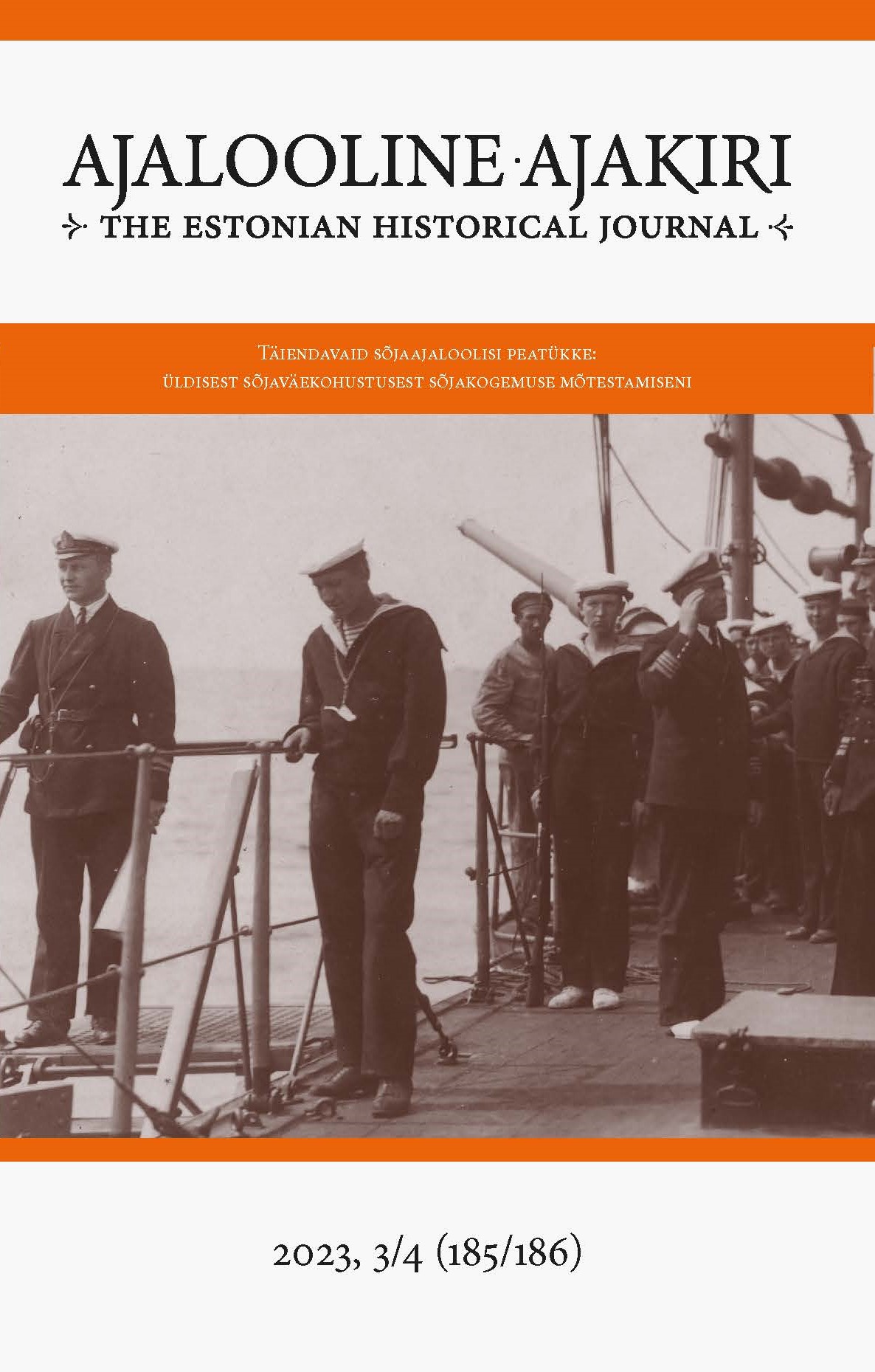Saksa keele kool. Eesti sõjavangid ja saksa keele õpe Esimese maailmasõja aegsel Saksamaal
DOI:
https://doi.org/10.12697/AA.2023.3-4.03Keywords:
First World War, Estonian prisoners of war, German language learning, textbooks, phrasebook, Esimene maailmasõda, eesti sõjavangid, saksa keele õpe, õpikud, vestmikudAbstract
School of German. Estonian prisoners of war and the teaching of German in Germany during the First World War
This article argues that proficiency – or lack thereof – in the German language significantly affected the experience of Estonian soldiers who became prisoners of war in Germany during the First World War. Inability to speak German increased the likelihood of being exposed to more strenuous labour, isolation, or even the risk of violence. Proficiency, on the other hand, not only aided survival but also brought privileges and possibly advancement in camp hierarchy. The surviving ego-documents of former POWs frequently highlight language issues, emphasising their importance in lived experience.
Camp leaderships and the Prussian Ministry of War (the highest national authority that administered the German POW camp system) similarly considered it important and desirable to improve the POWs’ German language skills. While better knowledge of German among prisoners could have drawbacks like facilitating attempts to escape, the positive aspects were more significant. German-speaking prisoners could carry out more detailed tasks at work or even serve as translators. After Estonian POWs were subjected to a special treatment regimen in 1917, the question of their German proficiency also gained political significance. The authorities tried to use it as an avenue for promoting pro-German sentiment amongst the prisoners. From that point onwards, POWs were also supported with instructional materials to help them learn German.
Two German textbooks for Estonian prisoners of war were published in 1918. They offer insight into camp life and also illustrate German political goals in relation to the POWs. Since the prisoners demonstrated a high degree of interest in learning German, these materials may have aided their education. However, those who learned German to a proficient level likely did so independently. The small scale and insufficient print runs of the textbooks likely kept them from making a significant difference.
By using the proficiency of Estonian prisoners in German as a case study, this article highlights the more general importance of foreign language issues in war experience. Future research could explore similar themes among diverse prisoner groups and nations dealing with language barriers in war.
Downloads

